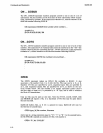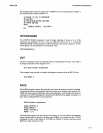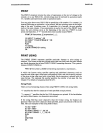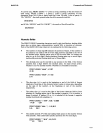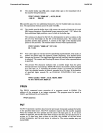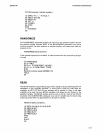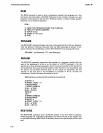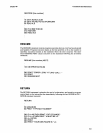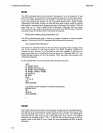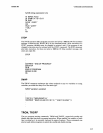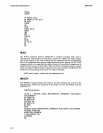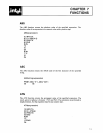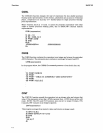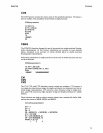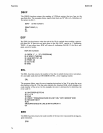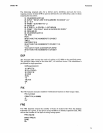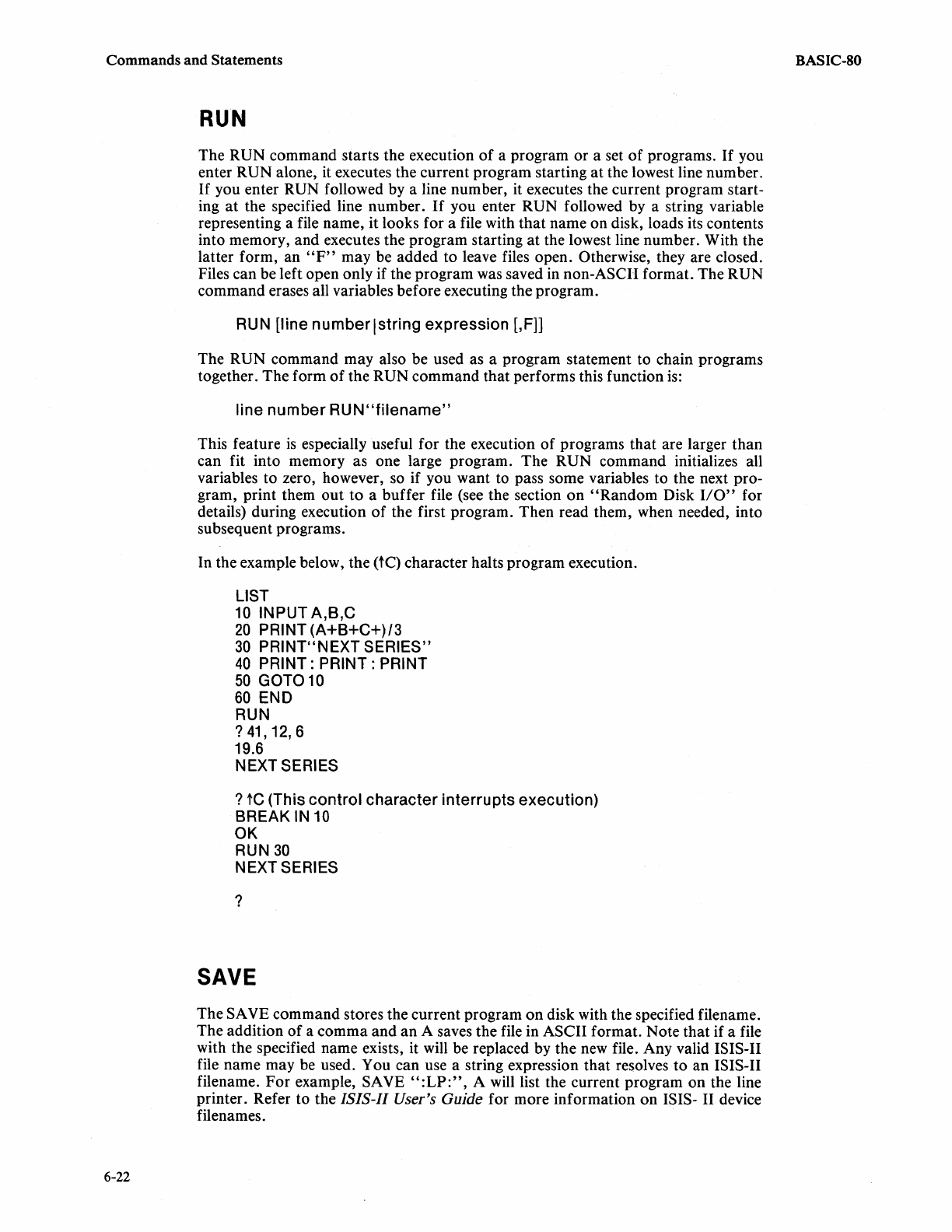
Commands
and
Statements
6-22
RUN
The RUN command starts the execution
of
a program or a set
of
programs.
If
you
enter
RUN
alone, it executes the current program starting
at
the lowest line number.
If
you enter RUN followed by a line number, it executes the current program start-
ing
at
the specified line number.
If
you enter RUN followed by a string variable
representing a file name, it looks for a file with
that
name
on
disk, loads its contents
into memory,
and
executes the program starting
at
the lowest line number. With the
latter form, an
"F"
may be added
to
leave files open. Otherwise, they are closed.
Files can be left open only if the
program
was saved in non-ASCII format.
The
RUN
command erases all variables before executing the program.
RUN
[line
numberlstring
expression [,F]]
The RUN
command
may
also be used as a program statement to chain programs
together.
The
form
of
the
RUN
command
that performs this function is:
line number RUN
"filename"
This feature
is
especially useful for the execution
of
programs
that
are larger
than
can fit into memory as one large program.
The
RUN command initializes all
variables to zero, however, so if you want to pass some variables to the next pro-
gram,
print
them
out
to
a
buffer
file (see the section
on
"Random
Disk
110"
for
details) during execution
of
the first program. Then read them, when needed, into
subsequent programs.
In the example below, the (tC) character halts program execution.
LIST
10
INPUT A,B,C
20
PRINT (A+B+C+)/3
30
PRINT"NEXT SERIES"
40
PRINT: PRINT: PRINT
50
GOTO 10
60
END
RUN
?41,12,6
19.6
NEXT SERIES
?
tC
(This control character interrupts execution)
BREAK
IN
10
OK
RUN
30
NEXT SERIES
?
SAVE
The SAVE command stores the current program
on
disk with the specified filename.
The addition
of
a
comma
and
an
A saves
the
file in ASCII format. Note
that
if a file
with the specified name exists, it will be replaced by the new file. Any valid
ISIS-II
file name may be used. You can use a string expression that resolves
to
an ISIS-II
filename.
For
example, SAVE
":LP:",
A will list the current program
on
the line
printer. Refer to the
ISIS-II User's Guide for more information
on
ISIS- II device
filenames.
BASIC-SO



